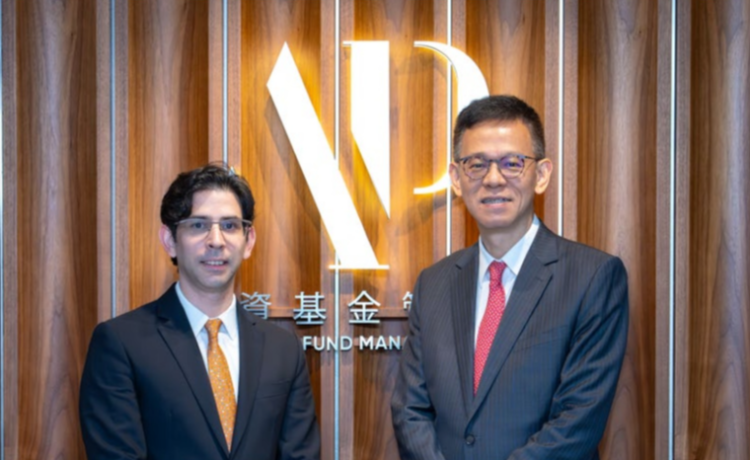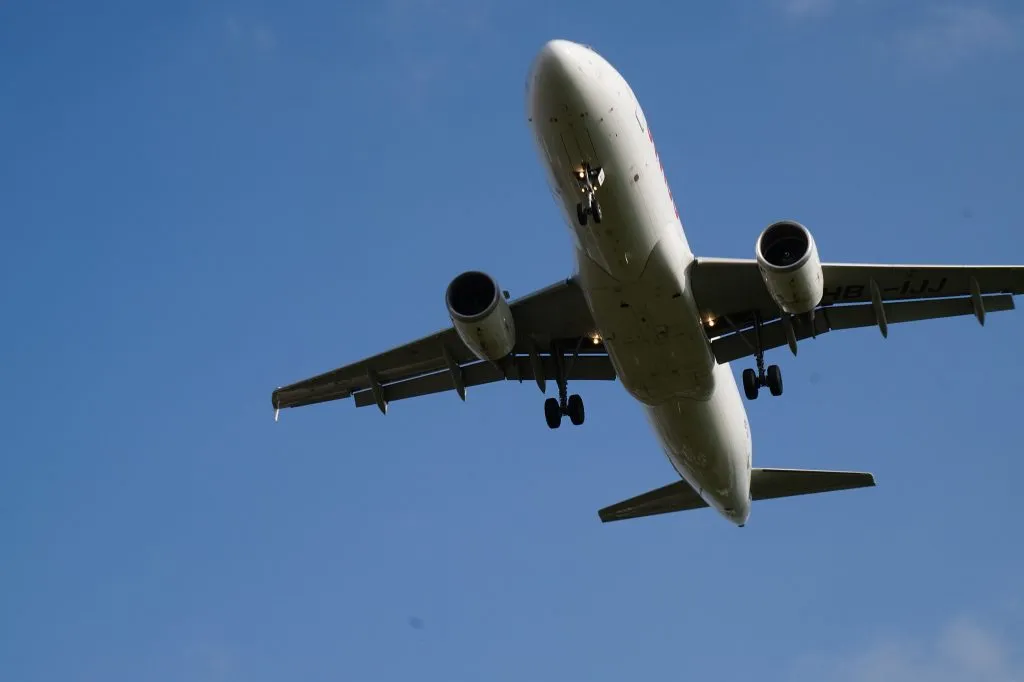By José Carlos Matias
Photos by Lei Heong Ieong
The city’s first locally registered money market open fund solely denominated in patacas has been launched. It’s the brainchild of Bernardo Alves and Abraham Kot, who are looking to make a splash in the city’s financial industry.
A&P Investment Fund Management Company Limited received approval in early May from the Monetary Authority of Macau and secured a special license—the first of its kind—to establish the “A&P Macau Patacas Money Market Fund,” which was launched on July 3.
In an exclusive interview with Macau Business and Business Intelligence, A&P’s chairman and founder, Bernardo Alves, and CEO, Abraham Kot, discuss the rationale behind launching their new fund, the city’s nascent fund industry, and the prospects for modernizing Macau’s financial services. The fund leverages Alves’ nearly two decades of experience in public and private equity investments, and Kot’s over three decades of experience across retail, commercial, and corporate banking, as well as investment fund management.
Tell us about the backstory behind setting up this investment fund.
Abraham Kot: First of all, I think that Bernardo Alves and I share the same idea about how to approach people’s wealth management in Macau. In 2016, I was coming from banking, and we realised something really important and astonishing at that time. Clients told us that it was difficult to find a responsible investment fund manager. As you know, most of the public funds are created in Hong Kong, and every time issues arise, people seem to struggle to see a response from them.
So, I said, why not create something for the local people? I believe that Bernardo and I really wanted to create something at that time. We wanted to develop tailor-made investment products for locals.
In 2021, Bernardo and I thought, why not apply to create an investment fund management company in Macau, according to the local regulations? The company was eventually established in early 2023, with the special registration from the Monetary Authority of Macau (AMCM) being granted in June 2023.
It then took another three months to complete our application for the first public fund.
We submitted the application to AMCM in October 2023, and in May 2024, we secured the permit.
“I truly believe that we are not competitors to the banks’ income. We are their partners” – Abraham Kot
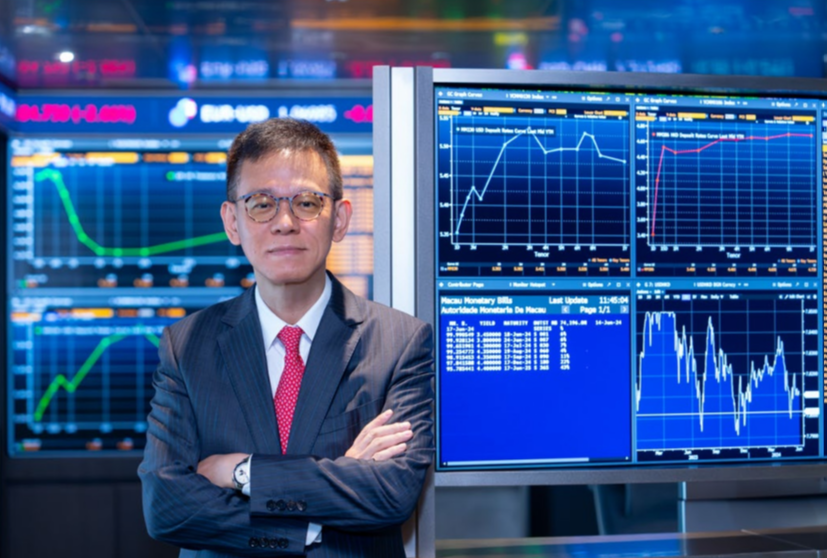
This [having a locally registered MOP-denominated open public investment fund] is something entirely new for the city. How would you describe the whole process and the main challenges you faced throughout this process?
A.K.: When we recall the year 2022, it was a time of financial turmoil. In the property market in China, equities and bonds nosedived. As you know, we are very close to the local banking sector. We heard numerous negative investment stories. People were afraid of making investments. They believed that high risk would not translate into high returns.
So, we were struggling a lot. Finally, we made a decision. We tried to model our fund after well-known, stable, and reliable ones. We searched for the most popular public funds, particularly money market investment funds. Then we identified a very stable model, one that is good for the city’s local residents.
Why start with a public money market investment fund and not, let’s say, a private fund? What’s the rationale behind this approach?
A.K.: First of all, we believe that a private fund shouldn’t be our first project. The competition is very fierce in Hong Kong and Macau, and I don’t believe that it’s the right move for A&P to start with a private fund.
Secondly, given the complicated financial situation in 2022, we had to find something very safe in everybody’s eyes, where transparency is very high, and it’s easy for people to understand the portfolio and how they can see their investment returns.
What exactly are the components of a money market fund, and of your fund in particular?
A.K.: Basically, money market funds are very simple. They’re just like a savings product. We collect the investors’ money and deposit it into the fund, and then we place the money as large-scale deposits into big banks that can offer us a very attractive interbank interest rate.
Bernardo and I thought about something a little bit creative. By 2022, the US Federal Reserve had started to increase interest rates. By that time, we noticed the interest rate gap between the US dollar and the Hong Kong dollar. We also saw from AMCM information that the composite interest rate for MOP is substantially lower than that of the HKD. So, we took a bet: why not attract MOP deposits?
Of course, there’s one criterion that we have to explain to our investors very carefully. Do you have confidence in the peg system between the US dollar, the Hong Kong dollar, and the Macau pataca? If yes, that would be a fantastic financial plan for your money.
Some people think: What am I going to do with the salary I receive every month (in MOP)? Many people exchange it to HKD and then put it in an HKD deposit account. Some are even smarter: they change it into US dollars.
That’s why we are going to create a portfolio, bringing together bank deposits and one more item: US Treasury bills. The trading volume of these US Treasury bills is huge. You can easily invest and recover your money.
“A&P can play a crucial role in redefining the relationship with capital” – Bernardo Alves
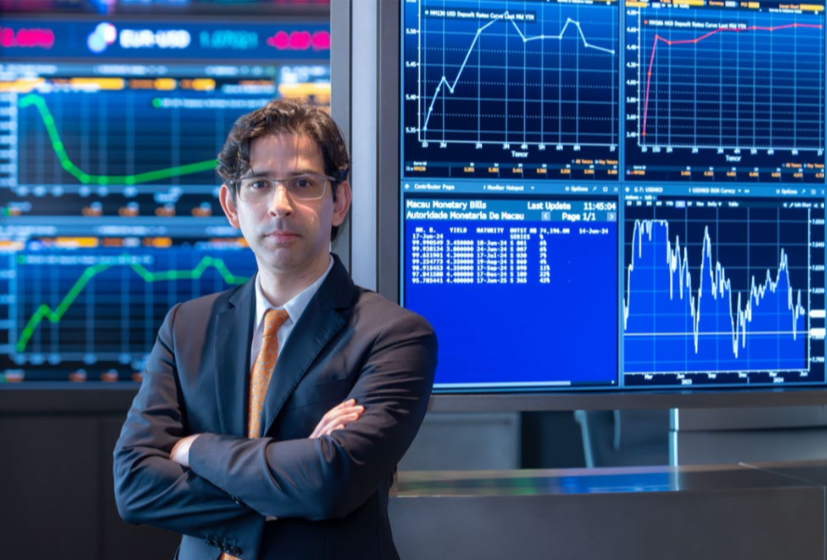
What’s the significance of having an MOP-denominated investment fund, the very first one? Is it also a kind of stance?
Bernardo Alves: Well, I think so. We could have constituted a fund of this kind since late 1999 [when the law governing the establishment of investment funds was enacted], but funds have always been constituted mostly in Hong Kong and denominated in HKD and USD.
I think it goes back to the mentality of Macau and its population.
When it comes to basic purchases, we all use MOP, but for big investments in our lives, most of which are in real estate, we use Hong Kong dollars. Naturally, there has been a predisposition for investment funds and insurance products to be quoted in Hong Kong dollars. Therefore, I understand the reasoning behind using HKD.
For us to be an investment fund company in Macau and not use MOP would’ve been a bit of a shame.
It also revolves around my belief that A&P can play a crucial role in redefining the relationship with capital. Since this is the first time an investment fund manager is locally based and we are doing something different, I think that it is a stance in a sense.
Coming back to your main point, yes, it is the objective of the company to make a statement. Something I wholeheartedly believe is that we, as a society and as locals, need the ability to invest in the currency in which we earn our salaries. It’s natural. So we are going to test this market.
A.K.: Local people are very conservative. Actually, I think we are shaking and shaping the local financial ecosystem, particularly the fund industry, by creating the first MOP money market fund. What is the meaning behind this? One crucial aspect is that the relationship between the investor and the fund manager has never been closer. We are a local company, so anytime any investor or person who wants to talk, share their wishes, or ask for advice about their money can come to our office.
“We are shaking and shaping the local finance industry, particularly the fund industry, by creating the first MOP money market fund” – Abraham Kot
“There have always been complaints that there’s no innovation. Let’s try to do something different in the financial industry” – Bernardo Alves
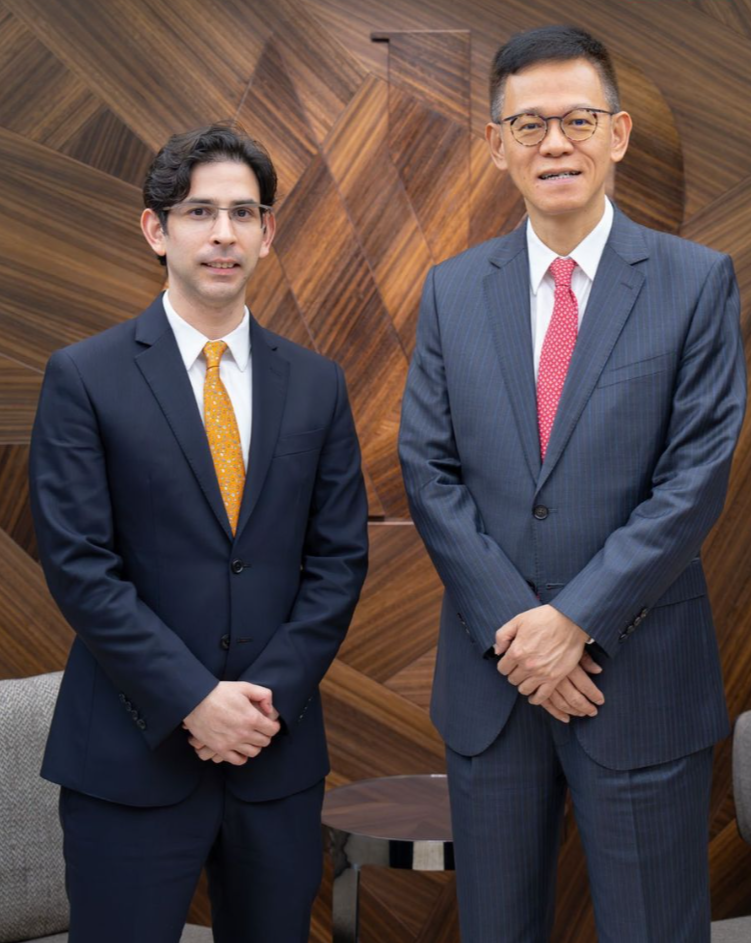
Customer service plays a key role here, right?
A.K.: Exactly.
B.A.: Investment is psychological. To be close to the investor, or for the investor to feel or need an understanding of the investments themselves, is also very soothing, I would say.
The relationship we had with funds in Macau has been the opposite. When the fund is performing well, the fund managers come and show; when the fund is not performing so well, it’s natural that they don’t come.
That’s also a potential breach of transparency.
It’s all about the communication channel and the availability to say, ‘Look, we are here.’ We can talk about and explain the results. I think the explanation is the key part that will differentiate us from other companies.
As you are the very first locally licensed investment fund management company, are you expecting any kind of first-mover advantage?
B.A.: The fund’s application wasn’t easy. I don’t think any non-local company could have come here and tried to apply for it because, firstly, there was no precedent case. And when there’s no precedent, there is no timeline. This is an investment, and capital abhors uncertainty, of course.
We have been called pioneers. We’ve been called white lab rats. It’s natural. If there’s a first-mover advantage, it’s incidental.
I really wanted to develop this, and I found this fire in Abraham too, which was, “Let’s try to do something different in the financial industry.” There have always been complaints that there’s no innovation. Okay, let’s try something innovative.
You are working with Bank of China, the two Macau licenses.
A.K. – Yes, Bank of China Macau Branch is our custodian and also provides the administrator of the unit of the fund. We are also working with Bank of China (Macau) which is our distributor, to sell our fund to customers. The other banks are our counterparty.
B.A. – When we constitute the fund there’s a whole infrastructure behind it that supports the fund. One of these pillars is the depositary [custodian]. But both of them are extremely valuable because they control the assets of the fund too, and they supervise the transactions of the fund, whereas we control the investors and the investment. So this relationship is symbiotic. So we were lucky to have Bank of China be innovative.
And of course, we have an auditor and all the legal contracts behind us. So just the single movement of a new company that germinated in the industry created a shockwave along the industries in Macau. So that’s development. The objective of development is to try and push one company and see how other companies will also have to reinvest or maybe have to invest in new mechanisms that will hopefully propel our industry a little bit forward, and hopefully attract more capital. Because I believe the success of A&P is also the success of Macau in terms of showing that it’s indeed possible to develop a new idea and the conceptualization of an idea into the practicality of it.
You are, to some extent, in competition with the banking and insurance sectors. How do you address this?
B.A.: The money market fund, yes. It’s very important for any financial center to have its own products that can be bought as an investment, not only to combat inflation. As a savings mechanism, as a savings idea, it’s important. Not having such a product is problematic for a city like Macau in this instance.
The objective of launching the money market fund is also based on the idea that we need to start to populate certain investment silos, which have their own risk-return profiles in the market.
We could have launched an equity fund, and I would be as happy as everyone, you know, because that’s my expertise. But we realized very early, when we did the application to AMCM, that Macau needed a solid foundation.
So the money market fund is something that is required. This will be called the parking fund. A money market fund is the third-most traded asset class in the world. So naturally, Macau has to have it.
A.K.: I truly believe that we are not competitors to the banks’ income. We are their partners.
Traditionally, banking activity is mostly about deposits. But A&P and our funds are focusing on the wealth management industry, which is much bigger.
Don’t forget that our central government really wants us to move into the Greater Bay Area, which is a huge market for Macau companies and banks as well. So actually, we are partners. We work together, shoulder to shoulder.
“One crucial aspect is that the relationship between the investor and the fund manager has never been closer. We are a local company” – Abraham Kot
“There’s always a contrast of what is the speed that we should walk at. For the regulator tomorrow is too early, but for us, the private side, today is too late” – Bernardo Alves
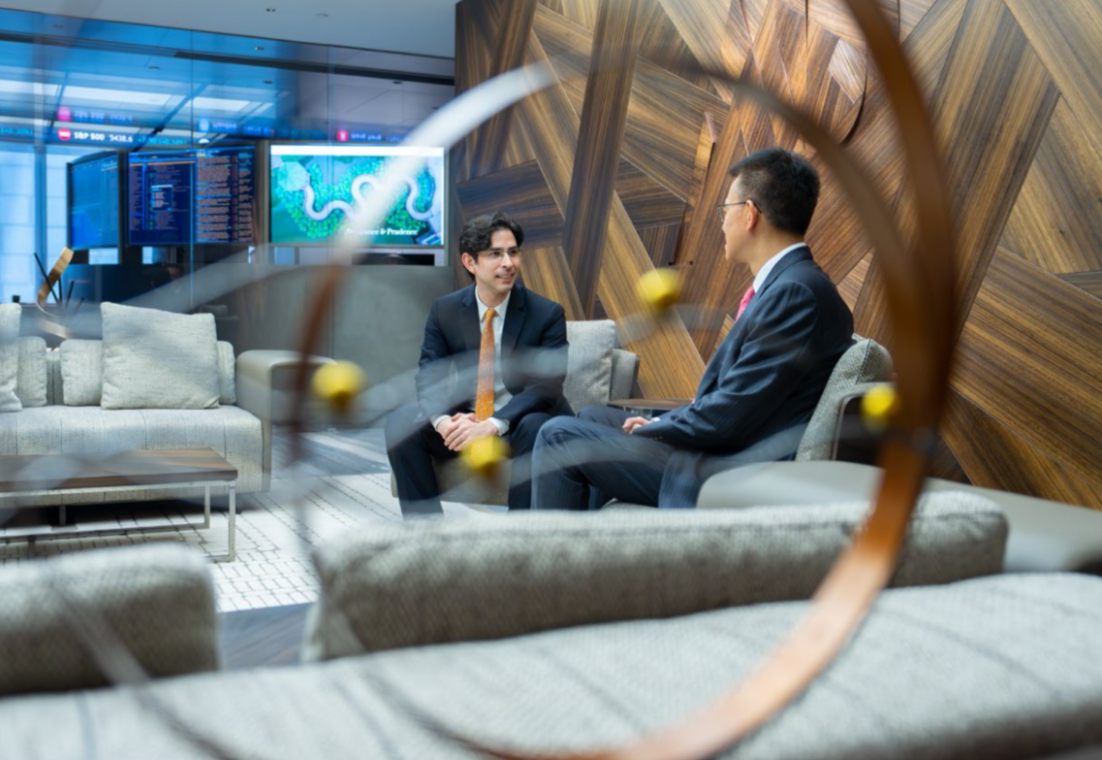
There has been much talk about the GBA Wealth Management Connect scheme. Will you be playing a role in this respect as well?
A.K.: That’s why we have designed this fund under a low-risk structure. Only a low-risk public fund will be allowed into the Greater Bay Area.
B.A.: We have to be careful because, in terms of legislation, what is considered a risky factor in one jurisdiction might not be in another. I really hope that we can work with AMCM to push this product along in the Greater Bay Area.
Looking further down the road, you have a business development plan with regard to having a portfolio of funds. What would be the next steps? Income funds? Bond-based funds? Private equity funds?
B.A.: This has to be worked out in conjunction with AMCM. They’re the ones capable of approving certain types of funds. Hopefully, we can tap into the main criteria, which are bonds and equity. I think this is something that is missing, but again, it depends on the financial development of Macau and the city’s financial literacy. And we need a lot of feedback from this first fund to see what worked and what didn’t work. This whole process is very market dependent too.
If everything aligns again, and if we think that the income side is important, then it’s something that we will tap into.
Right now, we are launching a prime money market fund, which is based on fixed time deposits and similar money market instruments. Hopefully, in the future, we can launch a government money market fund, which is actually the most popular version of a money market fund, and that’s based on government-issued securities only.
That will also depend on how far the regulator will go in terms of allowing the secondary markets to have access to certain tools, right?
B.A.: Well, this relates to M-bills (AMCM issued Monetary Bills) which are being traded in the primary market but not yet tradable in the secondary market. Taking such a step is a great opportunity, not only as a testing ground but also to gauge the depth of an instrument that is based in MOP. So it’s circular. One of my objectives is to see how we can unblock that.
A&P’s life has always been about proving people wrong and trying to break barriers. I think M-bills are one barrier, but for me, the money market fund is not done yet. And I think we still, as a population, require a government money market fund, and Monetary Bills perfectly reflect that. So hopefully, we can, in the near future, work with the authorities to try and unblock certain barriers.
This brings us to the wider issue of the overall infrastructure to develop the city’s modern finance industry. Where are we in this respect?
B.A.: When we say modern, we have to say modern with Macau characteristics. This is a very important idea. Otherwise, many aspects of Macau remain underdeveloped. When we compare ourselves to financial centres abroad, it’s understandable to feel we’re behind. So, when we discuss digital currencies or blockchain, these are significant 21st-century developments. But are we embracing them fully in Macau? That was my initial concern. Our journey to launch this fund has revealed that much of our industry still lags behind. While modern financial developments are a commonplace in Hong Kong and other financial hubs, Macau has a different story.
When we aim to develop modern finance or a new industry, we need to work closely with the regulator. However, there’s often a discrepancy in the pace we should adopt. Tomorrow might be too early for the regulator, but for us on the private side, today could be too late.
So, we need to find a marriage and a balance. We must test things step by step to see what works and what is viable.
In a broader sense, what are the main drivers and takeaways of this project?
B.A.: My idea for A&P is that it’s not just a slogan; it’s really the truth: we are genuinely trying to redefine the capital relationship. And the first chapter is MOP as an investment currency.
A.K.: We are trying to connect with people from around the world. Let’s build a team and then roll out more tools and products for Macau, Hong Kong, mainland China, Singapore, or even Portugal and the Portuguese-speaking countries. This is our platform.

